Let's be honest, sometimes you just make a lot of pasta. It's a classic comfort food that often leads to leftovers. But what do you do with that extra pasta? Should you just toss it in the fridge and hope for the best?
Well, my friends, I'm here to say, don't you worry! Freezing cooked pasta is a total game-changer. It's a simple, stress-free way to save time and avoid food waste. And in this guide, I'm going to share everything I've learned about freezing pasta over the years.
Part 1: The Basics of Freezing Cooked Pasta
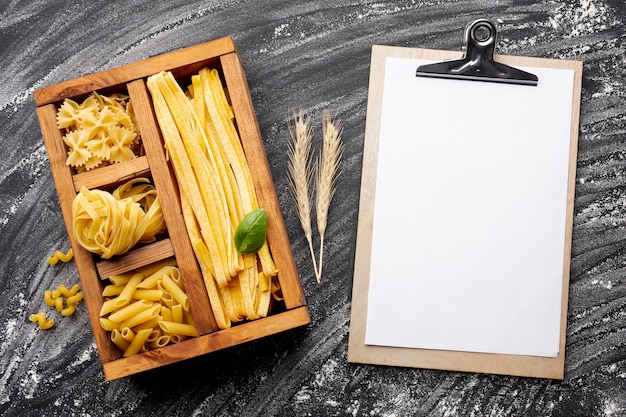
Why Freeze Pasta?
Freezing pasta is a fantastic way to ensure you never have to throw away perfectly good pasta again. It's also a massive time-saver. Imagine this: you've had a long day, but you're craving pasta. Instead of spending an hour cooking, you can just grab a bag of frozen pasta from the freezer and whip up a delicious meal in minutes. It's like having a personal pasta chef on call!
How Does Freezing Affect Pasta?
Freezing pasta doesn't drastically change its texture, although it might be a tiny bit softer than freshly cooked pasta. It's like a little trade-off for the convenience! The reason it becomes softer is that the water in the pasta freezes into ice crystals. These crystals can sometimes cause the pasta to release some of its starch during thawing, resulting in a slightly softer texture.
What To Expect From Frozen Pasta
Don't expect your frozen pasta to be exactly like fresh pasta, but it will still be delicious and perfectly usable in a variety of dishes. Think of it as a bit like the difference between fresh and frozen vegetables - the texture might be slightly different, but the flavour is still fantastic.
Part 2: Preparing Cooked Pasta For Freezing
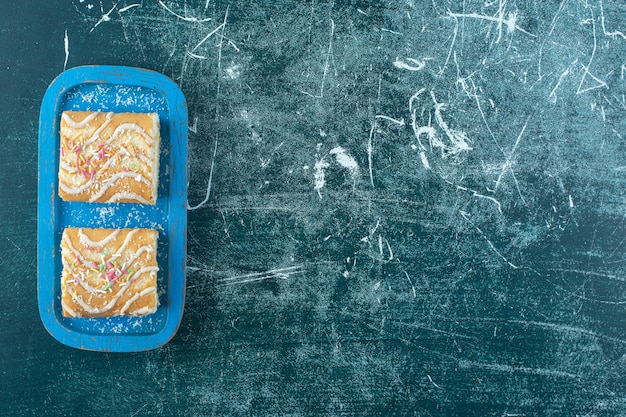
Choosing The Right Pasta
First things first, let's talk pasta types. Not all pasta shapes are created equal when it comes to freezing. Long pasta shapes like spaghetti, linguine, and fettuccine are the best choices because they're less likely to clump together. Shorter pasta shapes, like penne or macaroni, can sometimes stick together more when frozen, making them a bit more challenging to use later.
Cooking Your Pasta Like a Pro
The key to freezing pasta is to cook it al dente. That means cooking it just slightly undercooked. This is because the pasta will continue to cook a bit when you defrost it. If you cook it all the way through, it might end up overcooked and mushy after thawing.
Cooling Down Your Pasta
Once you've drained your pasta, you need to cool it down quickly. This prevents the formation of large ice crystals, which can make the pasta mushy. The best way to cool pasta is to run it under cold water for a few minutes. Then, toss it with a bit of olive oil. This will help prevent the pasta from sticking together while it's freezing.
Part 3: Freezing Cooked Pasta - The Dos and Don'ts
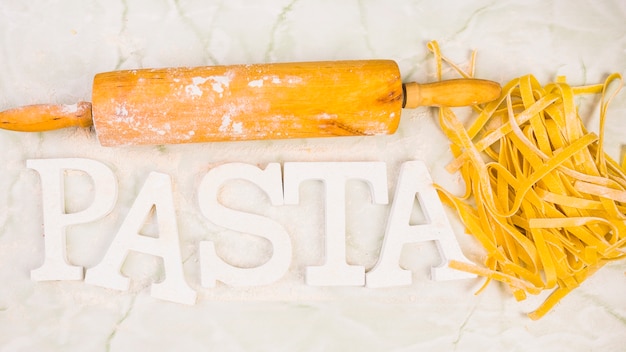
The Right Containers for Freezing
Now, let's talk about how to freeze your pasta. I'm a huge fan of freezer-safe bags. They're compact and take up less space in the freezer. You can also use airtight containers, but make sure they are freezer-safe. No one wants a pasta explosion in their freezer!
Freezing Pasta Like a Champion
1. Portion Your Pasta: Divide your cooked pasta into portions that you'll use for individual meals. I usually freeze about a cup of pasta per bag, which is perfect for a single serving.
2. Flatten For Faster Freezing: Flatten the bags of pasta so that they're as flat as possible. This will help them freeze faster and more evenly, reducing the risk of freezer burn.
3. Label and Date: Remember to label your bags with the type of pasta and the date you froze it. This will help you stay organised and ensure you use the pasta before it gets too old.
Freezing Pasta No-Nos
No sauce before freezing: It's tempting to add your sauce to the pasta before freezing, but I wouldn't recommend it. The sauce tends to separate, which can make the pasta mushy.
Cheese is a no-go: Don't add cheese to your pasta before freezing. It can make the pasta sticky and difficult to reheat.
Part 4: Defrosting Cooked Pasta
Defrosting In The Fridge
The safest and most consistent way to defrost pasta is in the refrigerator. Simply transfer your frozen pasta to a bowl and leave it in the fridge overnight. It will defrost slowly and evenly, leaving you with perfectly thawed pasta in the morning.
Defrosting on The Countertop
If you're in a pinch for time, you can defrost pasta on the countertop. But be careful! It can get a little warm and sticky if you're not careful.
Microwave Defrosting: Not My Favorite
While you can technically defrost pasta in the microwave, I would recommend against it. The heat from the microwave can make the pasta rubbery and unevenly cooked. It's not a good way to achieve that "perfect pasta" texture.
Part 5: Reheating Your Frozen Pasta
Microwave Reheating
For a quick and simple reheating, use your microwave. Just place your pasta in a microwave-safe dish, add a splash of water or your favorite sauce, and microwave until heated through.
Stovetop Reheating
If you prefer the traditional stovetop method, add a little oil to a pan and heat the pasta until it's warm. You can also add sauce to the pan and toss it with the pasta for extra flavour.
Oven Reheating
For a more luxurious approach, consider using your oven. Preheat your oven to 350°F (175°C). Place your pasta in an oven-safe dish, add a little sauce or water, and bake for 10-15 minutes, or until it's heated through.
Part 6: Freezing Pasta With Sauce
Freezing Pasta With Sauce: A Guide
Can you freeze pasta with sauce? The answer is…it depends! Freezing pasta with a creamy sauce is a bit tricky, as the sauce can separate and become watery when it's thawed. But, you can definitely freeze pasta with a tomato-based sauce.
Freezing Pasta With Tomato Sauce
1. The Right Sauce: Choose a tomato sauce made with good quality ingredients and avoid any creamy or dairy-based sauces.
2. Cook Your Pasta: Cook your pasta al dente and drain it well.
3. Combine Pasta and Sauce: Toss the cooked pasta with your chosen tomato sauce.
4. Cool and Freeze: Let the pasta cool completely before transferring it to freezer-safe containers or bags.
Important Tips for Sauce Freezing
Don't forget to label your containers and freeze the pasta as soon as possible to prevent the sauce from separating. And remember, the quality of the sauce you use will greatly affect the final taste and texture of the frozen pasta.
Part 7: Using Frozen Pasta In Recipes
Pasta Salad
Frozen pasta is a great base for pasta salads. Just thaw it overnight in the fridge and add it to your favorite recipe. It's a quick and easy meal option.
Pasta Soup
Frozen pasta can also be used in pasta soup. Add it to the soup near the end of cooking time and allow it to heat through.
Pasta Bake
You can even use frozen pasta in your favourite pasta bake recipes. Thaw it overnight in the fridge, then use it just like you would fresh pasta.
Part 8: Freezing Leftover pasta dishes
Freezing pasta dishes
You can definitely freeze whole pasta dishes, but it's generally best to freeze them before they're fully assembled.
How To Freeze Pasta Dishes
1. Choose the Right Dishes: Not all pasta dishes are suitable for freezing. Creamy dishes often separate and become watery, so stick to tomato-based dishes or those with a simple sauce.
2. Assemble the Dish: Make your dish as usual, but avoid adding any cheese or other ingredients that may separate when frozen.
3. Cool and Freeze: Allow the dish to cool completely before transferring it to a freezer-safe container.
Tips for Reheating Frozen Dishes
When reheating frozen pasta dishes, it's always a good idea to cook them for a little longer than you would fresh pasta to ensure that the ingredients are heated through.
Part 9: FAQs
1. Can I Freeze Pasta With Cheese?
It's best to avoid freezing pasta with cheese because it can make the pasta sticky and difficult to reheat. If you want to add cheese to your pasta dish, do it after you've reheated it.
2. How Long Can I Freeze Cooked Pasta?
Frozen cooked pasta can generally last for up to 2-3 months in the freezer. But the longer you freeze it, the more likely it is to become dry and mushy.
3. Is Frozen Pasta Safe To Eat?
Yes, frozen pasta is perfectly safe to eat as long as you follow the recommended freezing and defrosting instructions.
4. How Do I Know If Frozen Pasta Has Gone Bad?
If your frozen pasta has been stored for longer than 3 months, it's best to throw it away. You can also tell if it has gone bad if it has developed an off smell or colour.
5. What Happens If I Freeze Pasta That's Not Fully Cooked?
Don't freeze pasta that hasn't been cooked all the way through! It will be tough and rubbery when you cook it. Always cook your pasta al dente before freezing.
There you have it! Freezing cooked pasta is a simple, clever trick that can save you time and money. Now that you've mastered the art of freezing pasta, you can create delicious meals with ease. Happy cooking!
Everyone is watching

How to Cook Frozen Lobster Tails Perfectly: A Step-by-Step Guide
RecipesLobster. Just the word conjures up images of lavish meals, special occasions, and a taste of luxury. But let's...

Pigs in a Blanket Cooking Time: How Long to Bake for Perfect Results
RecipesAh, pigs in a blanket. Just the name conjures up images of those delightful little parcels of crispy pastry en...

Pork Fillet Cooking Time: How Long to Cook It Perfectly
RecipesPork fillet, or tenderloin as it's sometimes called, is a real favourite in our house. It's so versatile, and...
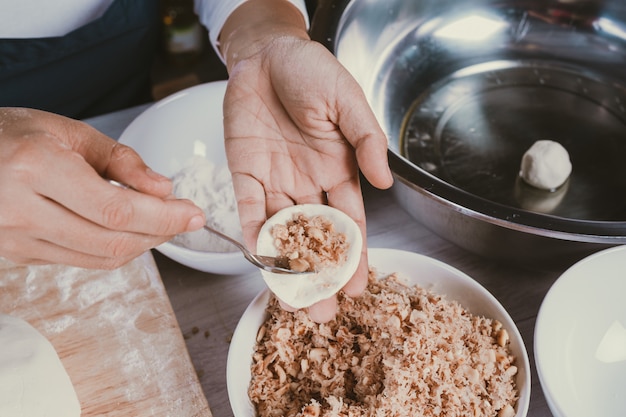
The Ultimate Guide to Tender, Juicy Pulled Pork
RecipesRight, let's talk pulled pork. It's one of those dishes that just screams "comfort food," doesn't it? I mean...
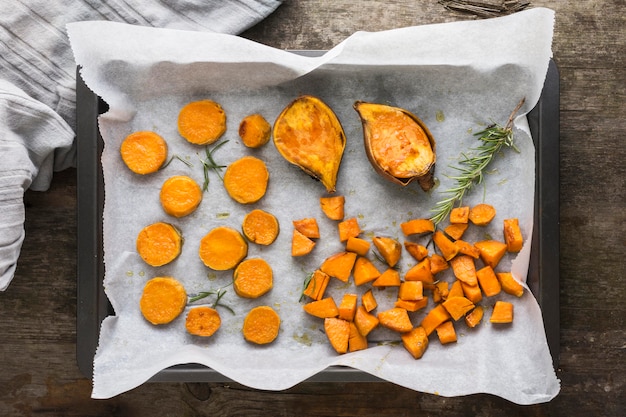
The Ultimate Guide to Cooking Sweet Potatoes: From Roasting to Mashing
RecipesSweet potatoes. Just the name conjures up images of warm, comforting dishes, bursts of vibrant color, and a to...
